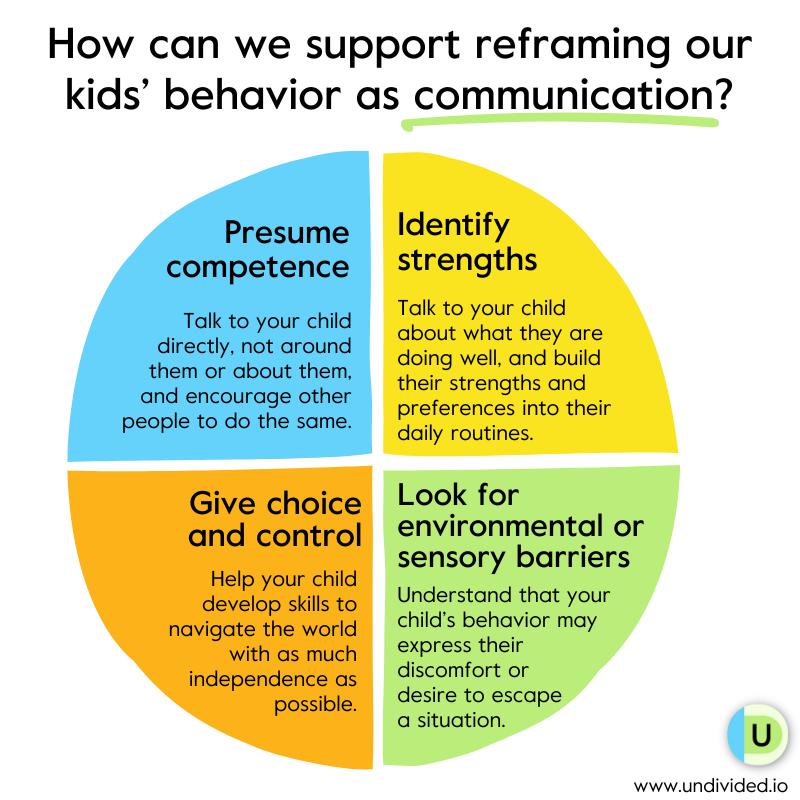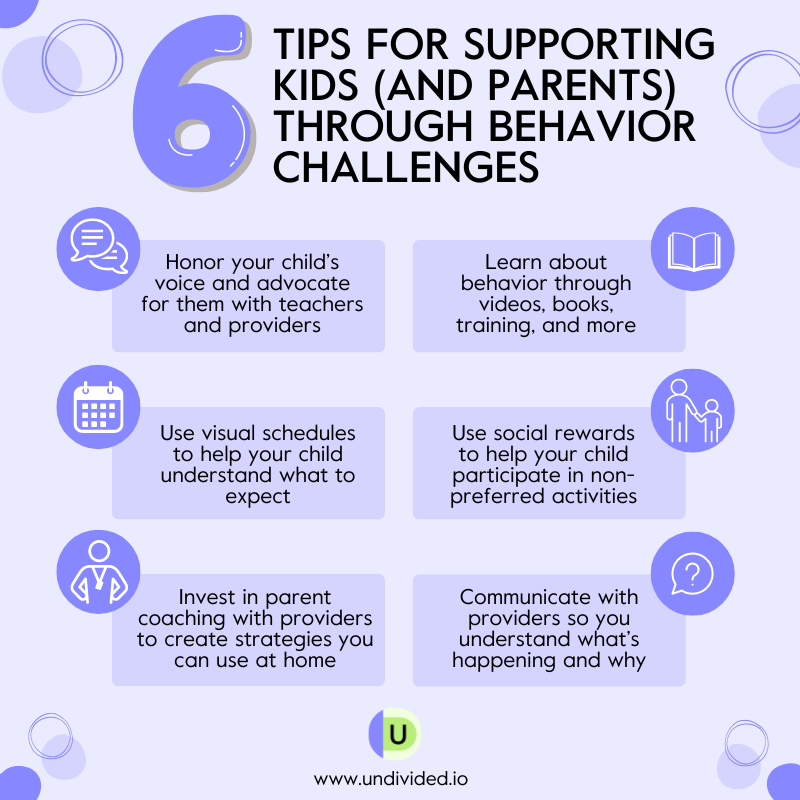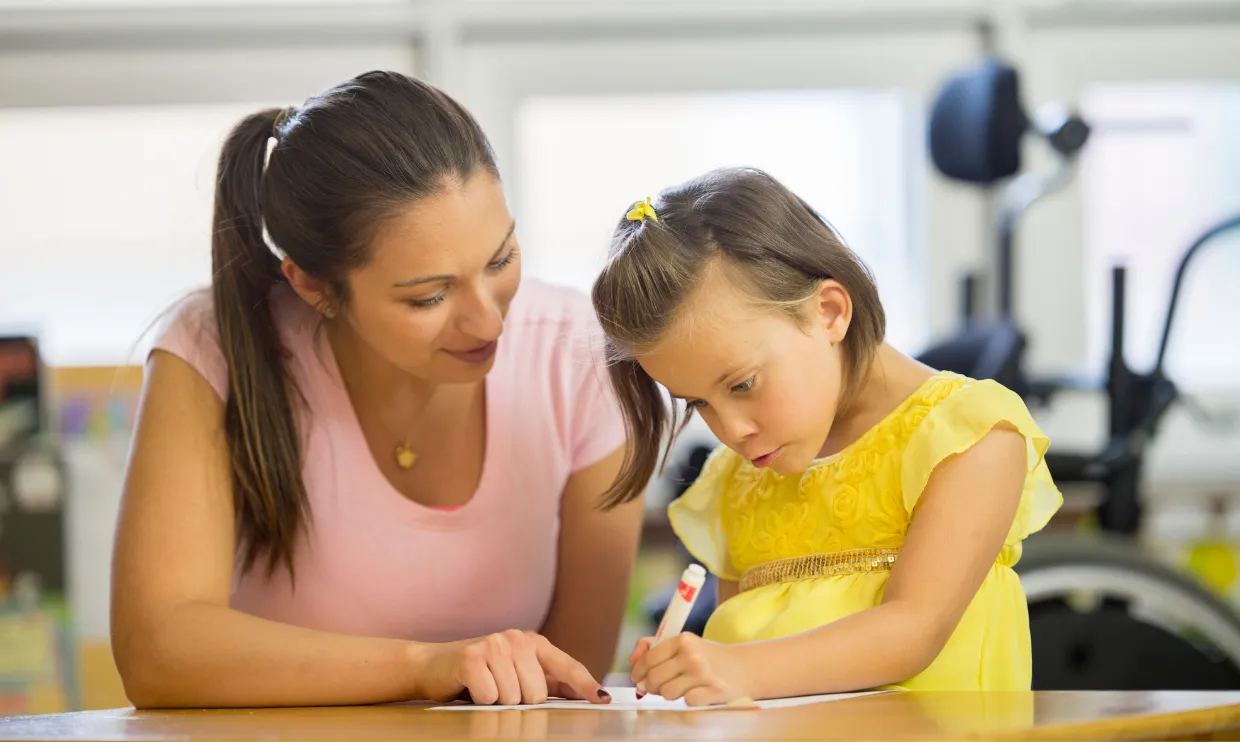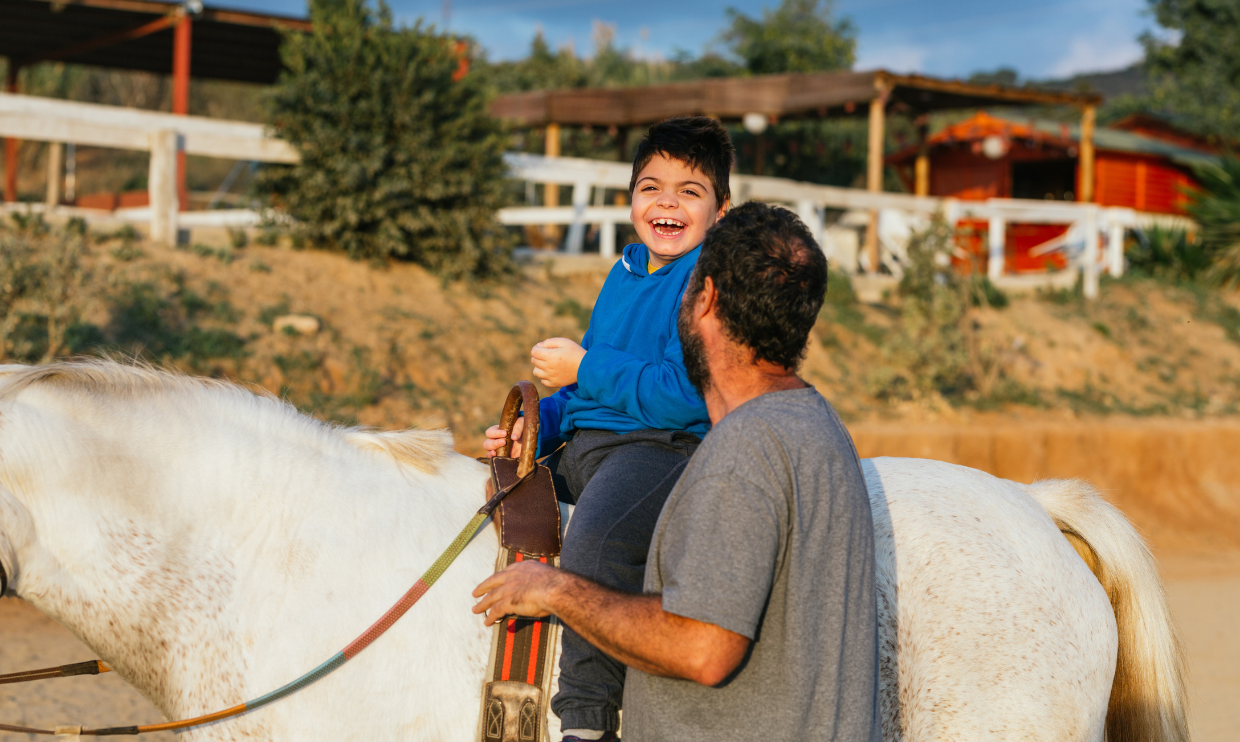Supporting kids through challenging behaviors
Behavioral challenges are tough on any parent, and it can feel like a lot to handle some days. Understanding why children with disabilities have challenging behaviors is the key to providing intervention. Hint: all behaviors occur for a reason; it’s up to us to figure out what that underlying reason is. But with so many different views on behavior and a plethora of approaches, interventions, theories, and therapies, it can feel overwhelming. Not everything is going to work for every child, so how do we find the right fit for our unique kids, something that feels empowering, healthy, and aligns with our values? Where do we even start? And is there such a thing as “bad behavior?”
To get more insights on the different approaches to behavior, common behavior challenges and interventions, neurodiversity-affirming therapies, behavioral goals in the IEP, plus tips for parents about managing behavior in school, at home, and in the community, we spoke to several experts in behavior, special education, and psychology.

Getting to the root of behavior
“When you’re in the moment and when you’re frustrated and your child is acting out, it often feels like there is no function to the behavior, it feels as if the function of the behavior is to just frustrate you. And that’s not the case. Behaviors are a form of communication. They do have a function. And when you can think that way, you can be logical. It helps you understand how to intervene and what to do,” Dr. David Stein, PsyD, pediatric psychologist explains.
Let’s explore the different reasons behind challenging behavior in kids with disabilities, including behavior as communication, what “non-compliance” actually means, and more in our article Behavior 101.

Common behavioral interventions and therapies
To ABA or not to ABA? Picking the right intervention or therapy for your child’s behavioral challenges can be a bit of a journey. It often involves some time, teamwork, and a bit of trial and error. So, how do you figure out which one is the best fit (and how to fund it)? And as a parent, how do you know if it’s actually working? Find more in-depth information on behavioral interventions, what to think about when choosing a specific intervention or provider, and all the ways to fund them in our article Common Behavioral Interventions and Therapies (and How to Fund Them).
Common behavior challenges in children
Dealing with behavioral challenges can feel like an endless roller coaster for both parents and kids. We’ve been there — tantrums, school refusal, head banging, skin picking, flopping on the floor, refusing to do tasks, biting, hitting, pushing, bullying, snatching toys, stimming, or wandering off.
Every behavioral approach or therapy will have a different way of handling these common challenging behaviors, so we’ve gone more in-depth and shared a few of them, along with tips for supporting kids (and ourselves) through behavior challenges in our article Common Behavior Challenges in Children (and How to Approach Them).

Supporting our children’s behavior at school
How can we get behavior supports at school that are supportive and strength-based? Positive Behavioral Intervention Plans (PBIS), Functional Behavioral Assessments (FBA), Behavioral Intervention Plans (BIP), behavioral goals — there’s a lot to cover. Some questions parents may have around behavioral supports at school include: Are FBAs only for addressing “dangerous” behaviors? Should IEP goals be about reducing “bad” behaviors? What about non-compliance in the IEP? We answer all these questions, and more, in our article Supporting Our Children’s Behavior at School.

One Undivided parent shared with us, “Undivided helps to keep me organized, and provides support when I need it. And just when I feel like I have not accomplished anything, I will get a message of all the things I did accomplish. It makes be feel good to have cheerleaders and people that are always so positive and kind.”

Undivided Conversations: Behavior 101: Supporting Kids Through Challenging Behaviors
Join Undivided Friday, May 24 at 12:00 p.m. PDT for an exciting virtual conversation all about behavior! As parents of children with disabilities, helping our kids navigate challenging behaviors while following the plans and goals set by therapists, doctors, and behaviorists can feel like learning a new language. That’s why we’ve reached out to top behavior experts to share effective strategies for supporting our kids through these challenges. Tune in at noon on Friday for the stream on our Facebook page!
In-Home Supportive Services (IHSS) for Ages 0–5: Live Virtual Event
Have you been told that your child doesn’t qualify for IHSS because they’re too young? Maybe you’ve hit other snags trying to apply for IHSS and make the most of these services. Join us Thursday, June 6, 1:00–2:00 p.m. PDT for a live event with Public Benefits Specialist Lisa Concoff Kronbeck. She’ll cover the basics, the recent rule change for parent providers, plus other tips specifically for babies and young kids. Register for this free event here on our RSVP page!

- Wondering about the main differences between ABA therapy and DIR interventions like Floortime? Check out this explanation on our YouTube channel→
- What if you request a behavioral assessment like an FBA near the end of the school year? Check out Dr. Sarah Pelangka’s answer on Instagram→
- A parent in our Facebook group recently shared that behavioral interventions taught them to “keep trying to catch your kid in the act of doing something right.” Join the discussion in our private group for parents!→
- Help us in our mission to reframe how we think about our kids’ behavior! Share our resources on LinkedIn→
- Does your child receive behavior interventions or therapies? Use the Undivided app to organize information for their providers, and share it with the click of a button. Get started→





























